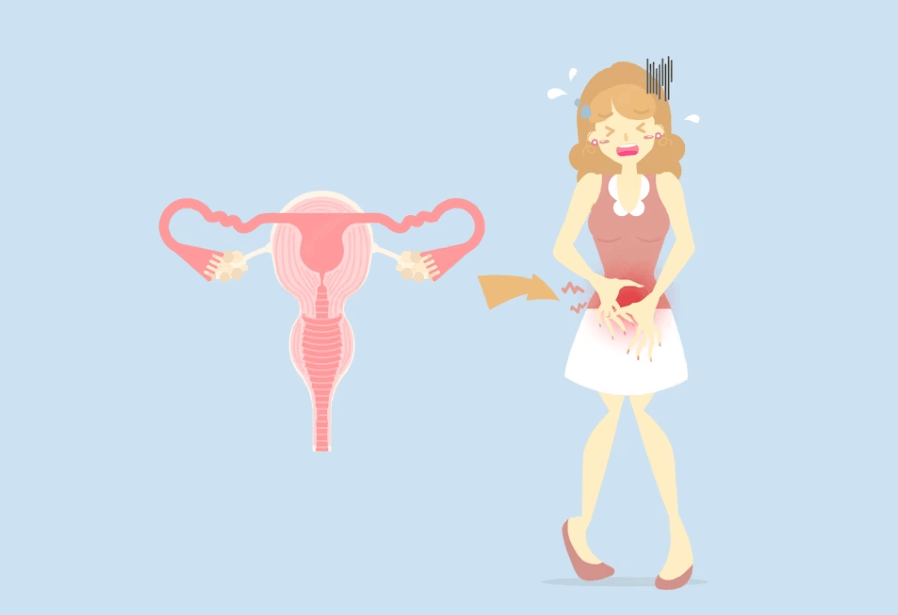Services
Gonorrhea – Symptoms and causes
Ayurvedic Treatment for Chronic Gonorrhea: Restoring Long-term Health and Well-being
Gonorrhea is a sexually transmitted infection caused by the bacteria Neisseria gonorrhoeae. While it is a common infection that usually affects the genital tract, it can also spread to the rectum, throat, and eyes. If left untreated, gonorrhea can lead to serious complications, including infertility and an increased risk of HIV transmission. In recent years, there has been a rise in the number of cases of antibiotic-resistant gonorrhea, making the treatment of this infection more challenging.
Gonorrhea is a prevalent sexually transmitted infection caused by the bacteria Neisseria gonorrhoeae. Primarily affecting the genital tract, it can also spread to other parts of the body like the rectum, throat, and eyes. If left untreated, it can result in severe complications such as infertility and a higher risk of transmitting HIV.
Unfortunately, there has been a concerning increase in cases of antibiotic-resistant gonorrhea in recent years. This means that the usual antibiotics used to treat the infection may not be effective anymore. This poses a significant challenge when it comes to finding appropriate treatment options.
The rise of antibiotic-resistant strains of gonorrhea is primarily due to the overuse and misuse of antibiotics. When antibiotics are used unnecessarily or not taken as prescribed, bacteria can develop resistance to the drugs, making them less effective in treating infections.
To combat this issue, it is crucial to promote responsible use of antibiotics and encourage safe sexual practices. Using condoms consistently and correctly can significantly reduce the risk of contracting or spreading gonorrhea. Regular testing and early detection of the infection are also essential for timely treatment.

Efforts are ongoing to develop new antibiotics and alternative treatments for antibiotic-resistant gonorrhea. However, until new options become available, it is crucial for individuals to take preventive measures, seek prompt medical attention if symptoms arise, and adhere to the prescribed treatment regimen to minimize the spread and impact of this serious infection.
Ayurveda and the Treatment of Gonorrhea
Ayurveda, the traditional system of medicine that originated in India, offers a holistic approach to the treatment of various ailments, including sexually transmitted infections like gonorrhea. Ayurvedic treatment for chronic gonorrhea focuses on addressing the root cause of the infection and restoring the overall health and well-being of the individual. It involves a combination of herbal remedies, dietary modifications, lifestyle changes, and detoxification therapies.
Ayurveda believes that chronic gonorrhea is caused by an imbalance in the three doshas – Vata, Pitta, and Kapha. The treatment aims to restore the balance of these doshas, strengthen the immune system, and eliminate the infection from the body.
Herbal remedies play a crucial role in Ayurvedic treatment for chronic gonorrhea. Medicinal herbs like neem, turmeric, ashwagandha, guduchi, and guggul are commonly used. These herbs have anti-inflammatory, antibacterial, and immune-boosting properties, which help in reducing the symptoms and fighting the infection. These herbs can be consumed orally or used topically as part of a medicated oil or paste.
Dietary modifications also play a significant role in Ayurvedic treatment for chronic gonorrhea. It is recommended to follow a diet that is easy to digest and avoids spicy, oily, and processed foods. Including foods like fresh fruits, vegetables, whole grains, lean proteins, and herbs like garlic, ginger, and cumin can be beneficial in boosting the immune system and promoting healing.
Lifestyle changes are essential in managing chronic gonorrhea. It is advised to avoid activities that can aggravate the infection, such as indulging in excessive sexual activity or consuming alcohol and tobacco. Regular exercise, stress management techniques like yoga and meditation, and maintaining personal hygiene are also emphasized.
Detoxification therapies or Panchakarma are commonly used in Ayurvedic treatment for chronic gonorrhea. These therapies help in eliminating toxins from the body and restoring the overall balance. Techniques like oil massages, steam therapy, herbal enemas, and nasal irrigation are employed to cleanse the body and promote healing.
It is important to note that Ayurvedic treatment for chronic gonorrhea should be done under the guidance of a qualified Ayurvedic practitioner. They will assess the individual’s specific condition and customize the treatment plan accordingly. It is also advisable to seek medical advice from a conventional healthcare professional to ensure comprehensive and effective treatment.
Herbal Remedies for Gonorrhea
Ayurveda utilizes a wide range of herbs with antimicrobial, anti-inflammatory, and immune-boosting properties to treat chronic gonorrhea. Some commonly used herbs in the treatment of gonorrhea include:
- DAD Body Cleaner: DAD Body Cleaner has strong antimicrobial properties and can help combat the bacteria causing gonorrhea. It also possesses anti-inflammatory properties, which can reduce inflammation in the reproductive organs.
- DAD Sumedha Braine Boost Tea: DAD Sumedha Braine Boost Tea is known for its powerful anti-inflammatory and antimicrobial properties. It can help reduce inflammation and fight off the bacteria causing gonorrhea.
- DAD Ulcer Care Tea: DAD Ulcer Care Tea is an immune-boosting herb that can enhance the body’s natural defense mechanisms. It can help strengthen the immune system and support the body in fighting off infections, including gonorrhea.
- DAD Prosto Care: DAD Prosto Care is known for its diuretic and antimicrobial properties. It can help flush out toxins from the body and fight off the bacteria responsible for gonorrhea.
- DAD Ferti-M: DAD Ferti-M is a bitter herb with potent antimicrobial properties. It can help kill the bacteria causing gonorrhea and support the body in its healing process.
- DAD Live-Care: DAD Live-Care is a liver-protective herb that also possesses antimicrobial properties. It can help cleanse the liver and support the body in fighting off infections, including gonorrhea.
- DAD Pain Care: DAD Pain Care is rich in vitamin C and possesses strong immune-boosting properties. It can enhance the immune system’s response to infections and help in the treatment of gonorrhea.
It’s important to note that Ayurvedic treatments should be taken under the guidance of a qualified Ayurvedic practitioner. They can provide personalized recommendations and ensure the correct dosage and combination of herbs for treating chronic gonorrhea. It’s also crucial to consult a healthcare professional for an accurate diagnosis and to discuss the appropriate treatment options.
Dietary Modifications for Gonorrhea
In Ayurveda, diet plays a crucial role in the treatment of any ailment. When it comes to gonorrhea, certain dietary modifications can aid in the healing process and prevent further complications. Some dietary recommendations for individuals with chronic gonorrhea include:
- Increase consumption of fruits and vegetables: Fruits and vegetables are rich in vitamins, minerals, and antioxidants that can boost the immune system and help the body fight off infections. Include a variety of fruits and vegetables in your diet, such as citrus fruits, leafy greens, berries, bell peppers, and tomatoes.
- Incorporate probiotics: Probiotics, found in foods like yogurt, kefir, sauerkraut, and kimchi, can help promote healthy bacteria in the body and support the immune system. Including probiotic-rich foods in your diet can aid in reducing inflammation and improving gut health.
- Increase water intake: Staying hydrated is important in any illness, including gonorrhea. Drinking an adequate amount of water can help flush out toxins, support the immune system, and prevent dehydration.
- Limit processed foods and sugars: Processed foods and sugary treats can weaken the immune system and promote inflammation in the body. Avoiding or reducing the consumption of these foods can help in the healing process.
- Include herbs and spices: Certain herbs and spices have antimicrobial properties that can assist in fighting off infections. Incorporate herbs like turmeric, garlic, ginger, and cinnamon into your meals to boost their healing properties.
- Avoid alcohol and caffeine: Both alcohol and caffeine can weaken the immune system and hinder the body’s ability to heal. It is advisable to avoid or limit the consumption of alcohol and caffeinated beverages during the treatment of gonorrhea.
- Consult with an Ayurvedic practitioner: Ayurvedic practitioners can provide personalized dietary recommendations based on an individual’s dosha (body type) and the specific symptoms of gonorrhea. Consulting with a practitioner can help tailor the diet to the individual’s needs and optimize the healing process.
Remember that dietary modifications alone may not be sufficient to treat gonorrhea. It is crucial to seek appropriate medical treatment and follow the advice of healthcare professionals for a complete recovery.
Lifestyle Changes for Gonorrhea
Ayurveda emphasizes the importance of a balanced lifestyle for overall health and well-being. In the case of chronic gonorrhea, certain lifestyle changes can help in the treatment and prevention of further infections. Some lifestyle recommendations for individuals with gonorrhea include:
- Practicing safe sex: It is important to use barrier methods such as condoms to prevent the spread of gonorrhea and other sexually transmitted infections (STIs). This includes both vaginal and anal intercourse.
- Avoiding multiple sexual partners: Limiting sexual partners can reduce the risk of acquiring or spreading gonorrhea. Engaging in monogamous relationships or maintaining a long-term relationship can help in this regard.
- Regular screening: Getting regular check-ups and STI screenings can help in early detection and timely treatment of gonorrhea. This is especially important for individuals who engage in high-risk behaviors or have multiple sexual partners.
- Abstaining from sexual activity during treatment: It is advisable to abstain from sexual activity until both partners have completed the prescribed treatment for gonorrhea. This is to prevent reinfection or transmission to others.
- Maintaining good hygiene: Practicing good hygiene, including regular bathing and washing of genital areas, can help reduce the risk of developing complications related to gonorrhea. It is important to avoid using strong soaps or irritants that can disrupt the natural balance of the body.
- Healthy diet: Following a balanced and nutritious diet can support the immune system and overall well-being. Including plenty of fruits, vegetables, whole grains, and lean proteins can help in the recovery process.
- Stress management: Chronic gonorrhea can cause emotional stress and anxiety. Engaging in stress management techniques such as yoga, meditation, or relaxation exercises can help improve overall mental health.
- Adequate rest and sleep: Getting enough rest and sleep is essential for the body’s healing process. It helps the immune system function optimally and aids in the recovery from gonorrhea.
- Avoiding alcohol and smoking: Alcohol and smoking can weaken the immune system and make the body more susceptible to infections. It is recommended to avoid alcohol consumption and quit smoking to support healing and prevent further complications.
- Regular exercise: Engaging in regular physical activity can boost the immune system, improve blood circulation, and promote overall well-being. However, it is important to avoid strenuous activities during the acute phase of infection.
It is important to note that while these lifestyle changes can support the treatment and prevention of gonorrhea, medical treatment prescribed by a healthcare professional is essential for complete recovery. It is recommended to consult with a qualified Ayurvedic practitioner or healthcare provider for personalized advice and treatment.
Detoxification Therapies for Gonorrhea
In Ayurveda, detoxification therapies play a crucial role in the treatment of chronic gonorrhea. These therapies help in eliminating toxins from the body, improving the functioning of the reproductive organs, and promoting overall health. Some commonly used detoxification therapies for gonorrhea include:
- Panchakarma: Panchakarma is a comprehensive detoxification program that involves a series of therapeutic procedures. It helps in eliminating accumulated toxins from the body and restoring balance to the reproductive system. Panchakarma treatments such as Vamana (emesis), Virechana (purgation), and Basti (medicated enema) are commonly used for gonorrhea.
- Abhyanga: Abhyanga is a form of Ayurvedic massage therapy that involves the application of herbal oils to the body. This therapy helps in stimulating the lymphatic system, improving circulation, and eliminating toxins. Regular abhyanga sessions can help in detoxifying the reproductive organs and reducing symptoms of gonorrhea.
- Herbal remedies: Ayurveda utilizes various herbs and herbal formulations for detoxification and improving reproductive health. Commonly used herbs for gonorrhea detoxification include neem, turmeric, guduchi, and ashwagandha. These herbs have antimicrobial properties and help in eliminating the causative bacteria while promoting healing.
- Swedana: Swedana is a herbal steam therapy that helps in opening up the pores and eliminating toxins through sweat. It improves blood circulation and enhances the immune system, which aids in the detoxification process. Swedana can be done using herbal steams containing detoxifying herbs such as eucalyptus, ginger, and tulsi.
- Yoga and meditation: In addition to physical therapies, Ayurveda emphasizes the importance of mental well-being in detoxification. Regular practice of yoga asanas, pranayama (breathing exercises), and meditation can help in reducing stress, promoting relaxation, and boosting the immune system. These practices support the body’s natural detoxification processes and aid in the treatment of gonorrhea.
It is important to consult a qualified Ayurvedic practitioner before undergoing any detoxification therapies for chronic gonorrhea. The practitioner will assess your individual condition and recommend specific treatments that are suitable for you. Detoxification therapies should always be done under the supervision of a knowledgeable professional to ensure safety and effectiveness.
Conclusion
Ayurvedic treatment for chronic gonorrhea offers a holistic approach that focuses on addressing the root cause of the infection and restoring long-term health and well-being. Herbal remedies, dietary modifications, lifestyle changes, and detoxification therapies play a key role in the treatment and prevention of gonorrhea. It is important to consult a qualified Ayurvedic practitioner for a personalized treatment plan tailored to individual needs and health conditions. In addition, it is crucial to practice safe sex and follow preventive measures to reduce the risk of gonorrhea and other sexually transmitted infections.
Ayurvedic treatment for chronic gonorrhea takes a comprehensive approach to healing by targeting the underlying imbalances in the body. Herbal remedies are used to strengthen the immune system, fight off the infection, and reduce inflammation. Some commonly used herbs include neem, turmeric, ashwagandha, and guduchi.
Dietary modifications are also an important aspect of the treatment plan. Foods that are known to have antibacterial properties, such as garlic, ginger, and bitter gourd, are encouraged. It is also recommended to avoid spicy, oily, and processed foods, as they can exacerbate symptoms.
Lifestyle changes are necessary to support the healing process. This includes getting enough rest, managing stress levels, and staying hydrated. Regular exercise and maintaining a healthy weight are also beneficial for overall well-being and immune function.
Detoxification therapies, known as Panchakarma, are often prescribed to remove toxins and impurities from the body. This may involve various techniques such as herbal steam therapy, oil massages, and nasal irrigation.
It is important to note that Ayurvedic treatment for chronic gonorrhea should always be done under the guidance of a qualified practitioner. They will assess your individual health condition and customize a treatment plan that is suitable for you.
Prevention is key in reducing the risk of gonorrhea and other sexually transmitted infections. Safe sex practices, such as using condoms, can greatly reduce the chances of infection. Regular testing is also recommended, especially for those who are sexually active or have multiple partners.
Overall, Ayurvedic treatment for chronic gonorrhea provides a holistic approach that not only targets the infection but also promotes overall health and well-being. By addressing the root cause and making necessary lifestyle changes, long-term recovery and prevention can be achieved.








